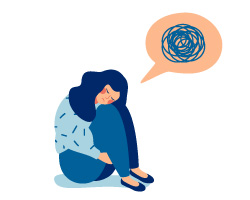
Broken bones, bruises and black eyes aren't the only signs of domestic abuse. Harassment and intimidation of any kind may signal that you are in an abusive relationship.
Very few people identify themselves as abusers or victims of abuse. But it is extremely important to speak up and seek help if you or a loved one is in an abusive relationship.
Signs of abuse
It's often difficult to admit that the person you love or live with is abusive. But there are clear signs that can help you recognize if you are being abused.
The Office on Women's Health says it's time to get help if someone in your life:
- Physically harms you.
- Threatens to hurt you, your children or your pets.
- Monitors what you are doing all the time.
- Criticizes you for little things.
- Prevents or discourages you from seeing family or friends.
- Gets angry when drinking alcohol or using drugs.
- Controls how you spend your money.
- Humiliates you in front of others.
- Destroys your property.
- Forces you to have sex against your will.
- Blames you for his or her violent outbursts.
Getting help
No matter what your situation, abuse is never acceptable. You can take the first steps toward ending an abusive relationship by asking your doctor how to get help. If you are being physically abused, you should notify a law enforcement agency immediately.
You can also call a women's shelter for help in developing a safety plan. Your safety plan should include packing a bag of clothes and personal items for yourself and for any children you have. Leave the bag at a friend's or neighbor's house.
Be sure you include cash, credit cards, extra checks and important personal papers, such as birth certificates, health insurance cards, and any court orders or papers. You should also hide an extra set of car and house keys outside of your home in case you have to leave in a hurry.
Making the decision to leave a loved one can be very difficult—even if you are being abused. But for your own well-being, it's essential that you take action to end the abuse. If you have children, they need this protection too.
To get immediate help and support, call the National Domestic Violence Hotline at 800.799.7233.
Reviewed 10/23/2023